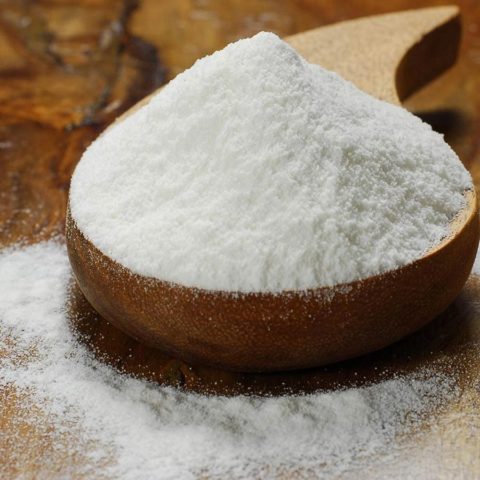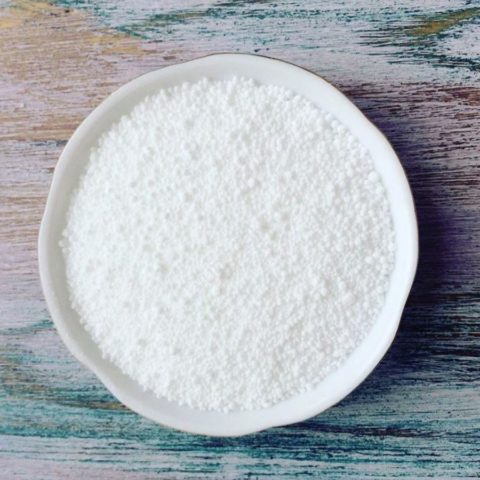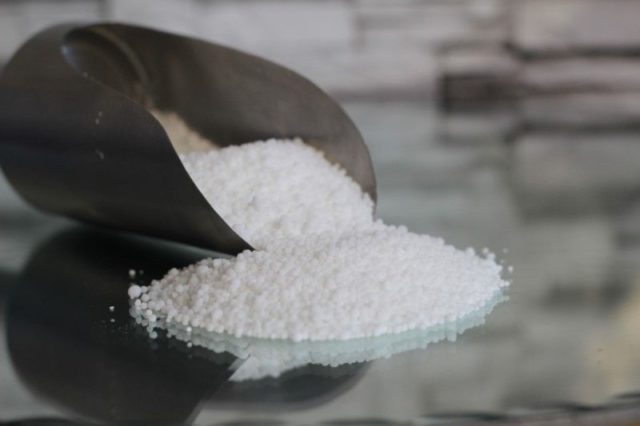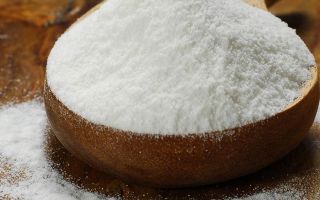Content
The benefits and harms of isomalt are an urgent issue for diabetics and for everyone who refuses sugar and prefers sugar substitutes. A confectionery additive can have a beneficial effect on the body, but it can also worsen well-being.
What is confectionery isomalt
Isomalt, or E953 additive, is a low-calorie carbohydrate that is used in confectionery instead of sugar in the preparation of desserts. It looks like a white crystalline powder, dissolves easily in liquid and is odorless, but has a sweet taste.
Isomalt is obtained from sucrose isolated from honey, cane, starch or sugar beet. The additive, when used, prevents the formation of lumps in products, has glazing properties and does not allow ingredients to cake.

The chemical composition of isomalt confectionery
Isomalt contains:
- hydrogen molecules - about 50%;
- oxygen molecules - 25%;
- carbon - 25%.
The nutritional value of the supplement is average - 240 calories per 100 g of product. This is more than other artificial sweeteners, but almost half as much as natural sugar.
Application area
Isomalt is used mainly in confectionery. It is used:
- to add sweetness to products and reduce acidity;
- as a preservative;
- to preserve the shape of desserts;
- to prevent caking and lump formation.
You can meet the additive in sweets and chocolate, caramel and ice cream, sauces, chewing gum and breakfast cereals.
Effect of E953 on the body
If the sweetener is not overused and used in limited quantities, it can be beneficial. In particular, confectionery isomalt:
- increases the energy reserves of the body;
- activates the intestines and improves peristalsis;
- helps maintain a healthy gastrointestinal microflora;
- helps to satisfy hunger and quickly creates a feeling of fullness;
- prevents sharp fluctuations in sugar levels.
Isomalt has no harmful effects on teeth and does not lead to caries. Although its nutritional value is not the lowest, in small quantities it is suitable for use in the diet.

Is it possible during pregnancy
The instruction for the use of isomalt prohibits its use during the period of bearing a child. The harmful effects of the food additive on the fetus have not been proven. But at the same time, doctors note that confectionery isomalt does not carry any benefit for the mother and child, but it can cause allergies. In addition, the features of E953 have not yet been fully studied, and it cannot be said with certainty that the substitute will not cause defects in the development of the fetus.
Although isomalt is lower in calories than sugar, it is best to consume a regular sweetener during pregnancy. If the dosages are observed, it will not lead to weight gain, but there will be more benefits from it.
Is isomalt possible for children
In general, isomalt is considered a safe food supplement. Despite this, it is not recommended to introduce it into the children's diet unless absolutely necessary. With a high probability, the product can provoke allergies in the baby, even with small dosages. If you still have to use E953, you should adhere to volumes of no more than 20 g per day and give the supplement to the child only after two years.
The benefits and harms of isomalt sweetener for diabetics
Isomalt is a safe sugar substitute for diabetics, since it is poorly absorbed by the intestines and practically does not change blood glucose levels after consumption. Patients can use the supplement in its pure form, for example, together with tea, or as part of confectionery products from specialty stores.

When using E953, it is necessary to observe moderate dosages - no more than 25-35 g of powder per day. Although isomalt has a low glycemic index, it has an average calorie content, and in large quantities, it can negatively affect the metabolism. An overdose of a sweetener causes diarrhea and nausea, abdominal pain, and skin rashes.
Contraindications to the use of isomalt
In some cases, the properties of isomalt can be detrimental. It is not recommended to consume a food supplement:
- during pregnancy and during feeding;
- with acute pancreatitis and stomach ulcer;
- with chronic gastritis in severe form;
- in childhood;
- with individual allergies;
- with constantly elevated blood glucose levels, characteristic of hereditary type I diabetes.
If there are no contraindications, isomalt can be used instead of sugar and in baking. But it is necessary to understand that with excessive use, even the E953 supplement will lead to weight gain or the occurrence of an eating disorder.
Conclusion
The benefits and harms of isomalt are closely related to each other. In small amounts, the supplement can be used instead of sugar on a diet and in diabetes, but at the same time, daily dosages of E953 cannot be exceeded.

